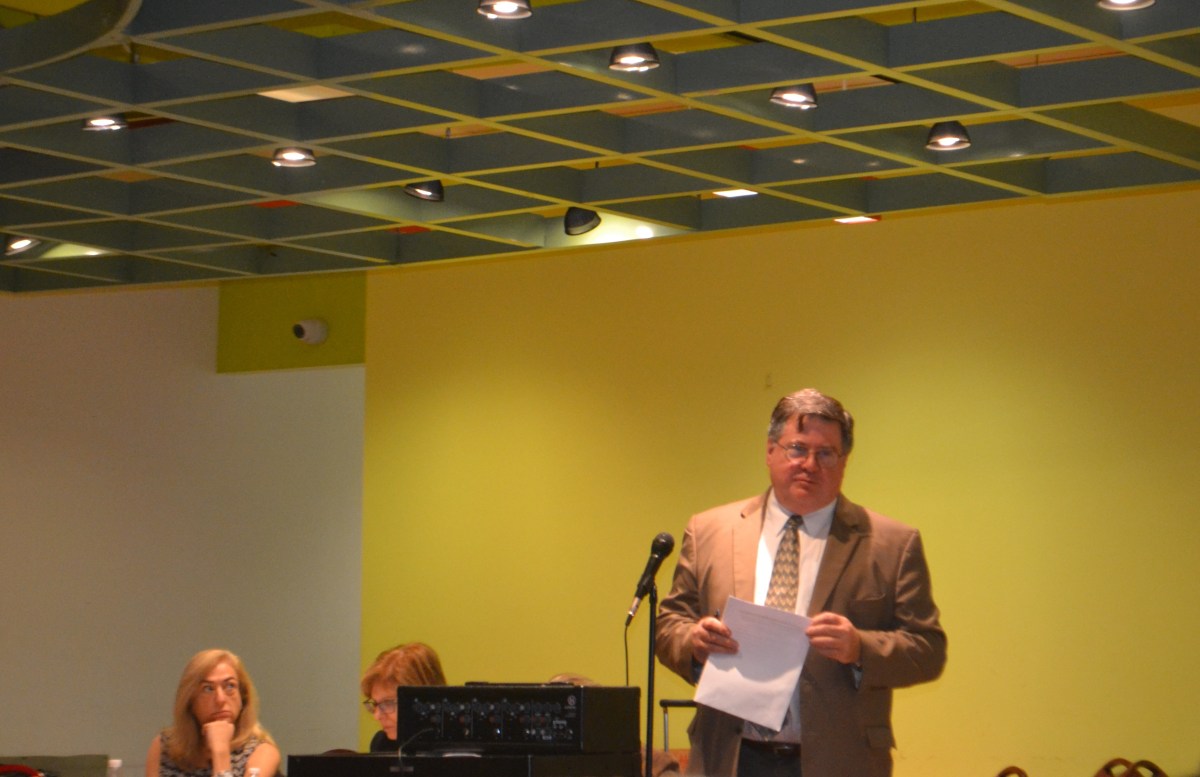After several presentations by the Department of City Planning (DCP) and discussions between residents and board members, Community Board 2 voted Thursday night to oppose two zoning text amendments unless big changes are made.
The DCP has been presenting the Mandatory Inclusionary Housing and Zoning for Quality and Affordability text amendments at community board meetings throughout the city to garner feedback and allow community members to vote on amendments that can have sweeping impacts if the city decides to re-zone specific neighborhoods.
Mandatory Inclusionary Housing would require a portion of new housing to be permanently affordable in certain areas that are rezoned. The city aims to build 80,000 new affordable units and is giving developers three options to obtain that goal. Developers can build affordable units in the same building as market-rate units, on-site in a separate building, or off-site, in a different zoning lot located within the same community district or within half of a mile of the community district.
CB 2 Chair Patrick O’Brien and Second Vice Chair Lisa Ann Deller said the community board wants affordable housing but voted to oppose the amendment unless several aspects of the amendment are changed, including a provision that would allow affordable housing requirements to be reduced or waived if developers claim that hardship makes developing these units unfeasible.
“Our community board, we dealt with that in a couple of instances and really suffered the consequences,” O’Brien said.
The amendment would also allow developers who build only 11 to 25 units in certain zones to deposit money into a fund designated for affordable housing instead of building affordable units either on-site or off-site.
“There was no elaboration of what that fund would do, who would administer it, how it would be directed to our community board for affordable housing,” Deller said. “We felt that that was a really insufficient description about what that would be.”
The Zoning for Quality and Affordability text amendment focuses on providing affordable senior housing and care facilities, enabling mixed-income housing and changes rules to encourage developers to move away from “flat, dull apartment buildings,” and toward the inclusion of retail space and greenery, according to the plan. These buildings could be upzoned to include an extra 5 feet.
Large sections of CB 2 would also be designated a Transit Zone since residents have several public transportation options. Developers looking to build affordable housing or senior housing in a transit zone would not have to provide off-street parking. Parking requirements outside of the transit zone would be simplified and even reduced for affordable and senior housing, according to the plan. This particular aspect of the plan was troublesome to the board and community.
“It was really a matter of concern for this community board to acknowledge the deficiency of transportation for seniors particularly,” O’Brien said.
Buildings along Queens Boulevard in Sunnyside and Woodside in R7A and R7X zoning districts would be up-zoned and developers would be permitted to construct 20-foot buildings. O’Brien and Deller argued that these buildings would not fit in with other developments in the area and would create a strain on the existing infrastructure, public transportation and already overcrowded schools.
The zoning amendment would not allow for additional density. Most community board members voted to oppose the plan unless concerns are addressed and a few members, including First-Vice Chair Stephen Cooper, abstained from voting.
Penny Lee, a city planner who presented an abridged version of the text amendments at the meeting, reminded the crowd that none of these amendments would take affect unless the city decided to re-zone large swaths of CB 2.
“Mandatory inclusionary housing has to go into effect through another zoning change,” Lee said. “So this text amendment that you’re about to vote on, if it’s never mapped anywhere, it doesn’t go into effect.”
The amendments must also be reviewed by Queens Borough President Melinda Katz, the City Planning Commission and City Council.


































